There is a lot of misinformation about weight loss
Losing weight can be an overwhelming task, especially considering all the misinformation shared online. After finally finding your motivation, the next step to take is action. Pause for a second, and before signing up for the first diet fad or exercise class that comes your way, read on for the answers to the most common weight loss questions—and “facts” you might have wrong.
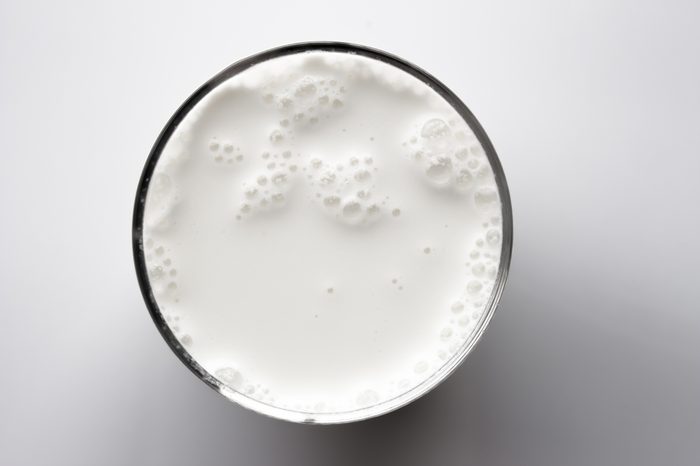
Should you eat low-fat dairy or full-fat dairy?
Nutrition experts used to almost always recommend skim milk (whole milk with all its fat skimmed off). But there is a growing number of people who think we should give whole milk a second look. Here’s why: When you pour skim milk on your cereal, you are getting a lot of carbohydrates and some protein. When you choose whole milk, you get the same amount of protein, but because whole milk has more fat, you might end up eating less because the fat fills you up and keeps you satisfied longer. A 2016 study published in the American Journal of Nutrition analyzed the impact of low-fat and full-fat dairy on obesity. It found that among the 18,438 women in the study, those who ate the most high-fat dairy lowered their risk of being overweight or obese by 8 percent.
Another common argument against full-fat dairy is that the fat it contains is saturated (which we know is controversial). But 2010 research in the American Journal of Nutrition suggests that when cows are allowed to graze on grass instead of highly processed, nutritionally deficient feed, their milk is more nutritious—and may even cut heart attack risk—when the fat is left in.
Bottom line: If all this leaves you scratching your head, don’t feel bad—we’re scratching ours too. We’re going to keep a close eye on the research. We recommend going with what you like once you’ve reached your goal weight, but be conscious of calories and serving sizes if you go full-fat.
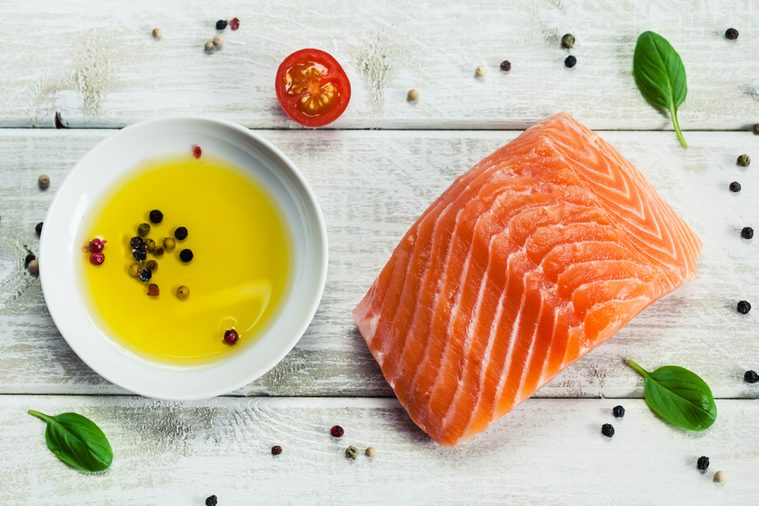
Can saturated fat actually be healthy?
For a long time, scientists believed saturated fat—the kind found in meat, full-fat cheese, butter, cow’s milk, ice cream, and palm and coconut oils—was the cause of heart disease. But that belief has gotten a bit more complicated.
The current thinking is that saturated fat does indeed raise LDL cholesterol, which is bad for your heart. But it also may raise HDL cholesterol and lower triglycerides, which may potentially be good for your heart. In effect, current research shows that saturated fat can have both a positive and negative impact on heart health. (Here’s what the American Heart Association has to say about saturated fat if you want to read in more detail.)
Bottom line: How saturated fat affects your health may come down to what you’re comparing it to. When people replace saturated fat with healthier unsaturated fats (found in fish, nuts, olive oil, avocado, and the like) it benefits their heart health. But if they replace them with simple carbohydrates, trans fats, and other unhealthful foods, it’s harmful. Think of it this way: you’re better off eating salmon (rich in unsaturated fat) than steak (which contains saturated fat). But you’re better off eating steak than fried chicken that’s breaded and cooked in shortening full of trans fats. Here are 12 more little weight-loss tricks only nutritionists know.
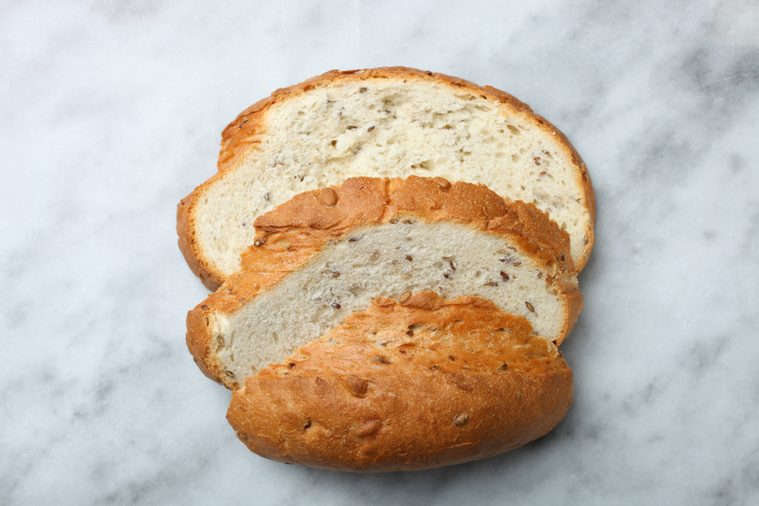
Are carbs the enemy?
When people peddling fad diets say the word “carbohydrate,” they tend to get a sour look on their faces, as if they’ve just bitten into a very tart lemon. The problem with this very black-and-white thinking—that carbs are bad and staying away from them is good—is that it represents an old way of thinking that has been debunked by the scientific community.
When it comes to sugar, white flour, white bread, and many other simple sugars, you’re better off without them. But you absolutely should be including vegetables, fruits, legumes, and even whole grains in your meals, which some fad diets wouldn’t recommend in a million years. Cutting out a whole food group just because a few members of the family are troublemakers makes no sense whatsoever.
Bottom line: Yes, cutting simple carbs helps rev up weight loss. But it’s not necessary to push complex carbs off your plate. You can lose weight while still enjoying the many health benefits of fruits, veggies, legumes, and whole grains. Check out these other 13 weight-loss rules even the pros don’t follow.
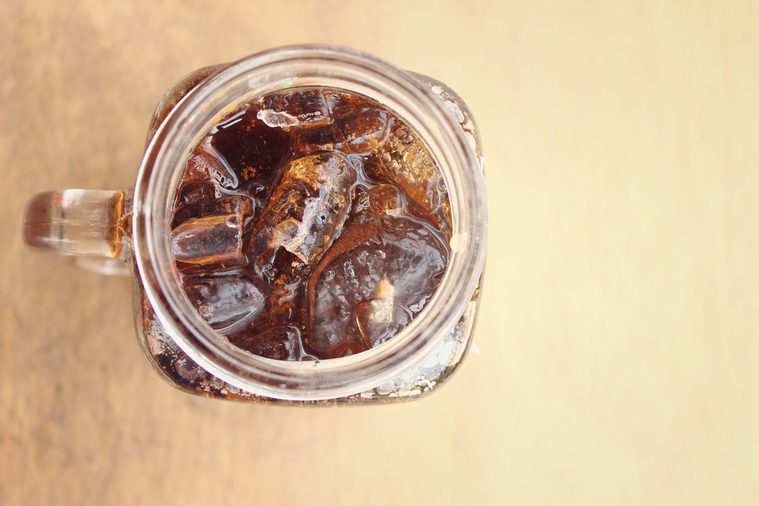
Artificial sweeteners help you lose weight, right?
You’d think that since they have few or no calories, artificial sweeteners would help with weight loss. But some studies suggest that’s simply not the case. A review in Current Gastroenterology Reports of artificial sweeteners concluded that they are associated with obesity and metabolic syndrome. Researchers hypothesize that artificial sweeteners may trick your body into thinking it is consuming real sugar, which causes you to release insulin and store belly fat. Artificial sweeteners may also contribute to carbohydrate cravings.
Bottom line: Is it going to kill you if you consume artificial sweeteners occasionally? No. But giving them up or cutting back helps reset your palate so it’s back to normal, able to appreciate the natural tastes of whole foods rather than always demanding hyper-sweet, sugar-laden foods.
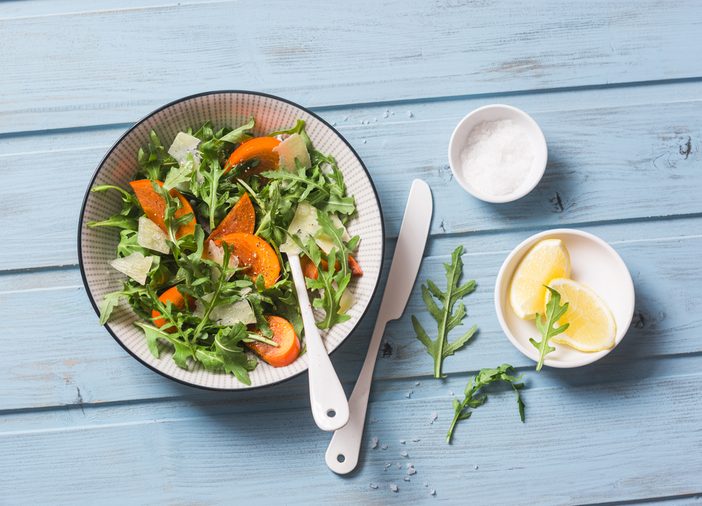
All my friends are going Paleo or keto. Should I try one too?
The Paleo and ketogenic diets are related, with an emphasis on cutting carbs while increasing protein and fat. With Paleo, dieters eat “like cavemen,” sticking with fruits, vegetables, and meat while steering clear of grains and processed foods. On the other hand, the ketogenic diet involves paying close attention to macronutrients: carbs, fat, and protein. The idea is that by limiting carbs while eating foods high in fat and moderate in protein, the body is forced to burn fat instead of sugars.
There’s a reason there are so many low-carb advocates bragging about how their diet has changed their bodies—promising results reported in the scientific research. But studies tend to be small and short, so it’s too early to claim they’re the answer to keeping the number on the scale low in the long term.
Bottom line: Consider your lifestyle and what you’re willing to give up before committing to a diet. Your goal should be long-term well-being—not just quick results—and you’ll regain the weight if you get burnt out. “The sustainability [of these diets] is just really low for the majority of people,” says registered dietitian Marjorie Nolan Cohn, MS, RDN, owner of MNC Nutrition in Philadelphia, Pennsylvania. “After a period of time, you get that sense of deprivation because you’re not eating that variety that you were used to.” Before taking the plunge, read the 15 things you need to know before starting a keto diet.
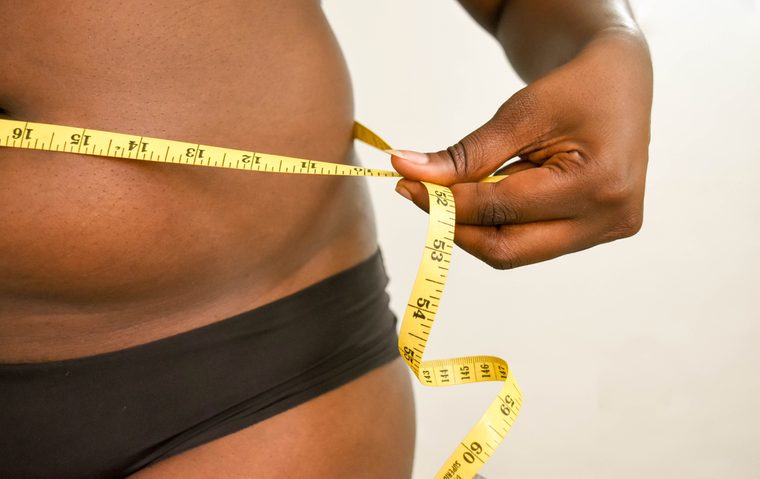
Do I need to cut 3,500 calories to lose one pound?
In 1958, a now-famous study crunched some numbers and concluded that cutting 3,500 calories was the equivalent of shedding one pound. But that study came out over 50 years ago, and suffice to say, we’ve learned a lot since then. Studies now show that the body will adjust to your new diet, says Laura Acosta, MS, RDN, dietetics lecturer at the University of Florida. The thinner you get, the harder it is to keep the weight-loss momentum going.
Sure enough, a more recent 2014 report confirmed we need to update the equation. While cutting calories does help you drop pounds, the weight-loss rate slows down by the time you’ve been dieting for four weeks, the analysis found. The 3,500-calorie rule “can lead to unrealistic expectations and eventual frustration when dieters can’t seem to shake those last few pounds,” says Acosta.
Bottom line: Cutting 100 calories a day doesn’t mean you’ll automatically lose ten pounds this year, so quit treating your meal plans like a perfect equation. Find an eating plan that will keep you healthy and satisfied in the long term, and be prepared to tweak it to match your body’s new needs, starting with these 12 secrets of people who have maintained their weight loss.
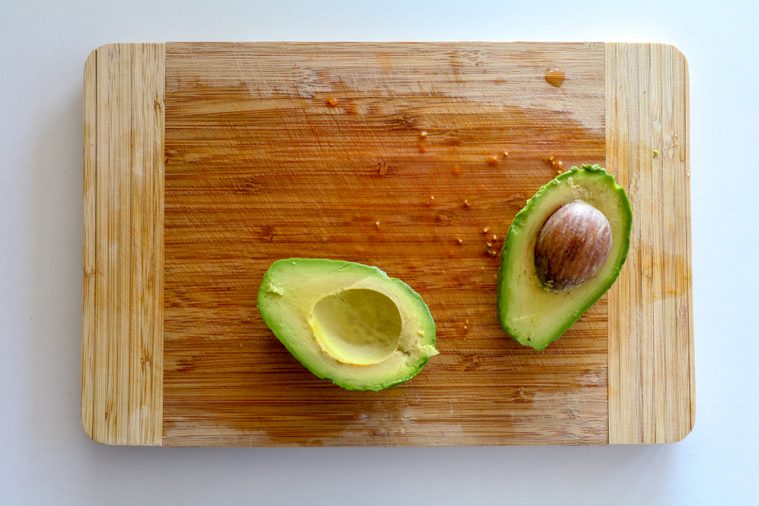
Losing weight just means burning more calories than you eat, right?
While you won’t lose weight if you’re eating more calories than your body can work off, there’s more to the equation than just “calories in minus calories out.” Not all calories are created equal. Carbs break down easily into simple sugars, so they’re the first things your body looks to when burning energy or storing fat. Meanwhile, protein takes more energy to digest and it is harder to turn into fat. So your body will treat 100 calories worth of protein differently than 100 calories worth of carbs.
Bottom line: Before you cut more calories from your daily intake, look at where those calories are coming from. “Playing with macronutrients can really help reboot the body on a cellular level,” says Nolan Cohn. Although balancing macronutrients or proportions is helpful, it’s not the only thing you need to consider. The quality of your diet is important, too, along with the combination of foods you eat. So try balancing your intake while opting for whole foods, when possible.
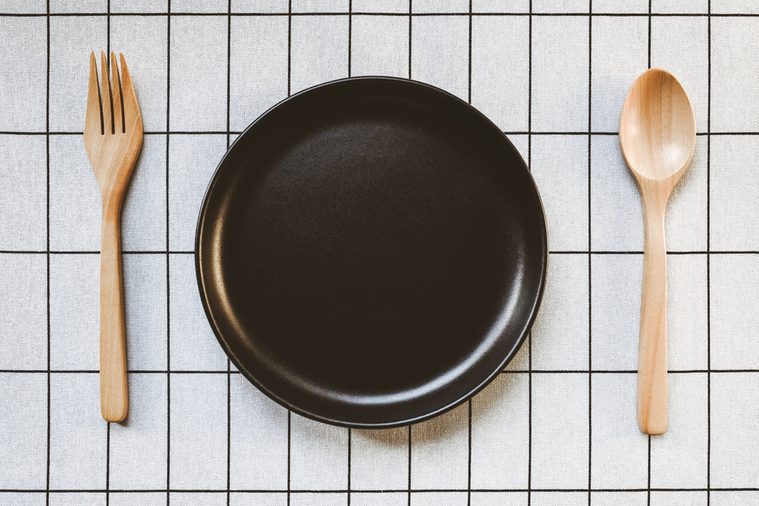
Does intermittent fasting really work?
Intermittent fasting eating plans can take a number of different forms, from squeezing meals into an eight- to twelve-hour window five days a week to eating nothing one day a week. They all manipulate your eating time-frame. A 2015 study in Molecular and Celular Endocrinology shows that intermittent fasting does indeed help people lose weight (though it’s no more effective than a typical calorie-cutting diet). By giving your digestive system a break, you can start burning the fat your body has been storing. Other research in the American Journal of Physiology and the American Journal of Clinical Nutrition also shows that the short-term fasting changes may alter hormones and increase metabolic rate.
Bottom line: Saving your “diet” for certain times might be more appealing than restricting yourself every single day, but it will only work if you can stick to your plan. “We want what we want, when we want it,” Nolan Cohn points out. If you think you’ll fall off the wagon the minute a brunch or happy hour invite comes, this might not be the eating plan for you.

Will the fat-burning setting on my elliptical really help me lose weight?
The fat-burning setting on a workout machine is designed to be less intense than other cardio programs. Carbohydrates are low-hanging fruit when your body is looking for energy, while fat is a bit tougher for your body to use. When you go slow and steady with your workouts, your body isn’t so desperate for quick energy, so you do burn a higher ratio of fat than you would going all-out on the cardio machine.
But that’s only part of the story. Because intense workouts burn more calories overall, you’ll still burn more fat in the same amount of time. As an example, Acosta points out that if 20 minutes of the fat-burning setting burns 100 calories (50 from carbs, 50 from fat) and the cardio setting burns 200 calories (140 from carbs, 60 from fat), the sweatier option is better for weight loss.
Bottom line: The question of fat vs. carbs isn’t as important as overall calories burned. Give a workout your all for the best results. Learn the truth behind these other 17 weight-loss “tricks” that don’t really work.

Can I eat what I want if I log more time at the gym?
On the surface, exercising for weight loss makes total sense: Burn more calories, and you’ll shed more fat. If only it were that simple. In one 2012 research study, 439 overweight and obese postmenopausal women started dieting, exercising, or both dieting and exercising, or they made no lifestyle changes. By the end of the study, just 3 percent of the exercise-only group reached their target weight-loss goals. In comparison, 42 percent of the dieters and 60 percent of those who’d dieted and exercised hit their goals. The results weren’t surprising. It’s all too easy to gobble up 800 calories in a single sitting, but working off that many calories off at the gym is another story.
Bottom line: Dieting and exercising together seems to be the best combination for successful weight loss. At the end of the day, exercise alone is not that effective.

How many calories should I be eating if I want to lose weight?
Good news: You can (and should) eat more calories than you might have been told. So-called diet gurus like to tout their 1,200-calorie meal plans, but that’s the absolute minimum a woman’s body needs before going into starvation mode. And when was the last time you aimed for the bare minimum?
A mere 1,200 calories might be enough for your basal metabolic rate—the calories your body would need if you did absolutely nothing all day—but it won’t necessarily keep you energized for basic activities like walking around. “If you cut too many calories too quickly, you’re going to be overly hungry and struggle to maintain that lower calorie intake in order to lose the weight,” says Nolan Cohn.
Bottom line: “The key is being above the basal metabolic rate but slightly below the total number of calories you burn in a day,” says Nolan Cohn. Women who are first starting a diet shouldn’t aim for any less than 1,500 to 1,700 calories a day, she says. Instead of sticking to a rigid number, give yourself a range to allow for wiggle room. Don’t miss these other 19 tips a weight-loss coach won’t tell you for free.

Is yogurt the ideal weight-loss snack?
With its gut-healthy probiotics and satisfying protein content, yogurt has taken center stage as go-to healthy snacks. But take a closer look at that nutrition label. “There’s so much yogurt on the market that’s just glorified ice cream in terms of sugar and artificial ingredients,” says Nolan Cohn. Most fruity and dessert-inspired varieties have tons of added sugar, negating any of the benefits you’re getting. And those fat-free, low-calorie versions usually have been stripped of their protein and probiotics.
Bottom line: When it doesn’t have all that extra sugar, yogurt packs in protein you need to keep your belly full. Buy an unflavored tub of Greek or Icelandic yogurt, which is higher in protein, and mix in fruit or a little honey to keep the sugar in check.
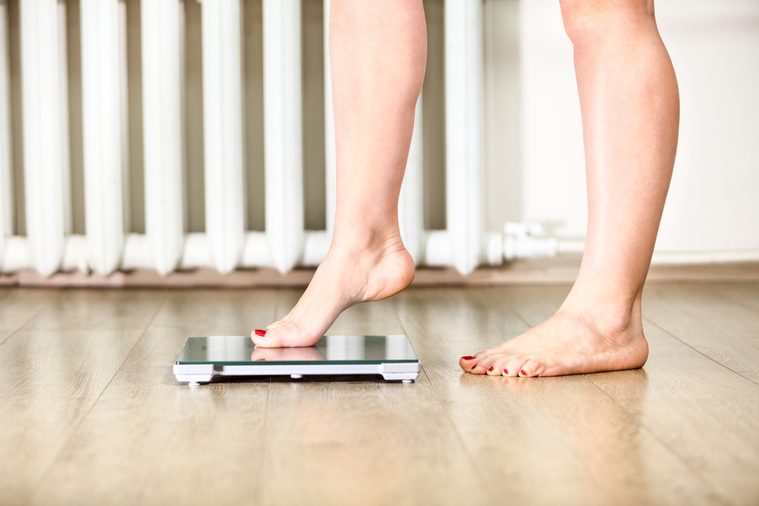
Can I be healthy without losing this extra weight?
Allow us to throw a wrench in all this weight-loss talk: The evidence of its health benefits isn’t as cut and dry as you’ve been told. A controversial 2013 meta-analysis of 97 studies concluded that obesity is linked with all-cause mortality—but being overweight isn’t. Throw in the fact that regaining lost weight (and more) is a huge issue, and it’s easy to see why health experts are turning from the calorie-counting approach to a focus on general wellness.
There’s still good reason to change your ways, even if it’s not in the name of weight loss: A study of 11,761 adults found that adopting healthy habits—eating five or more fruits and veggies a day, exercising regularly, not smoking, and drinking moderately—lowered risk of death even if they were overweight or obese.
Bottom line: “In reality, it is your behaviors that determine your health, not the number on the scale,” says intuitive eating coach Alissa Rumsey MS, RD, creator of the free Ditch the Diet e-course. Instead of restricting yourself, she recommends tuning in to your fullness cues. When you actually stop eating when you’re satisfied, you’ll likely end up eating less without feeling deprived—which could finally be the end of your yo-yo dieting. Don’t miss these other 50 things your doctor wishes you knew about losing weight.
Talk to a registered dietitian for advice:
RDs are the nutrition experts and the best source of advice for anything related to food, nutrient, or dieting. Find one near you via the “Find an Expert” button on the Academy of Nutrition and Dietetics website.
